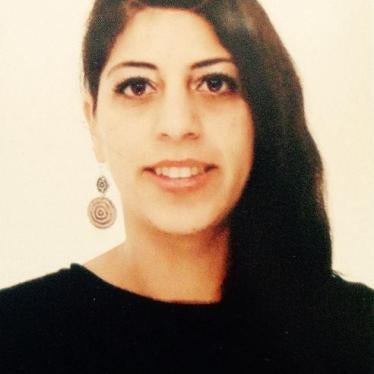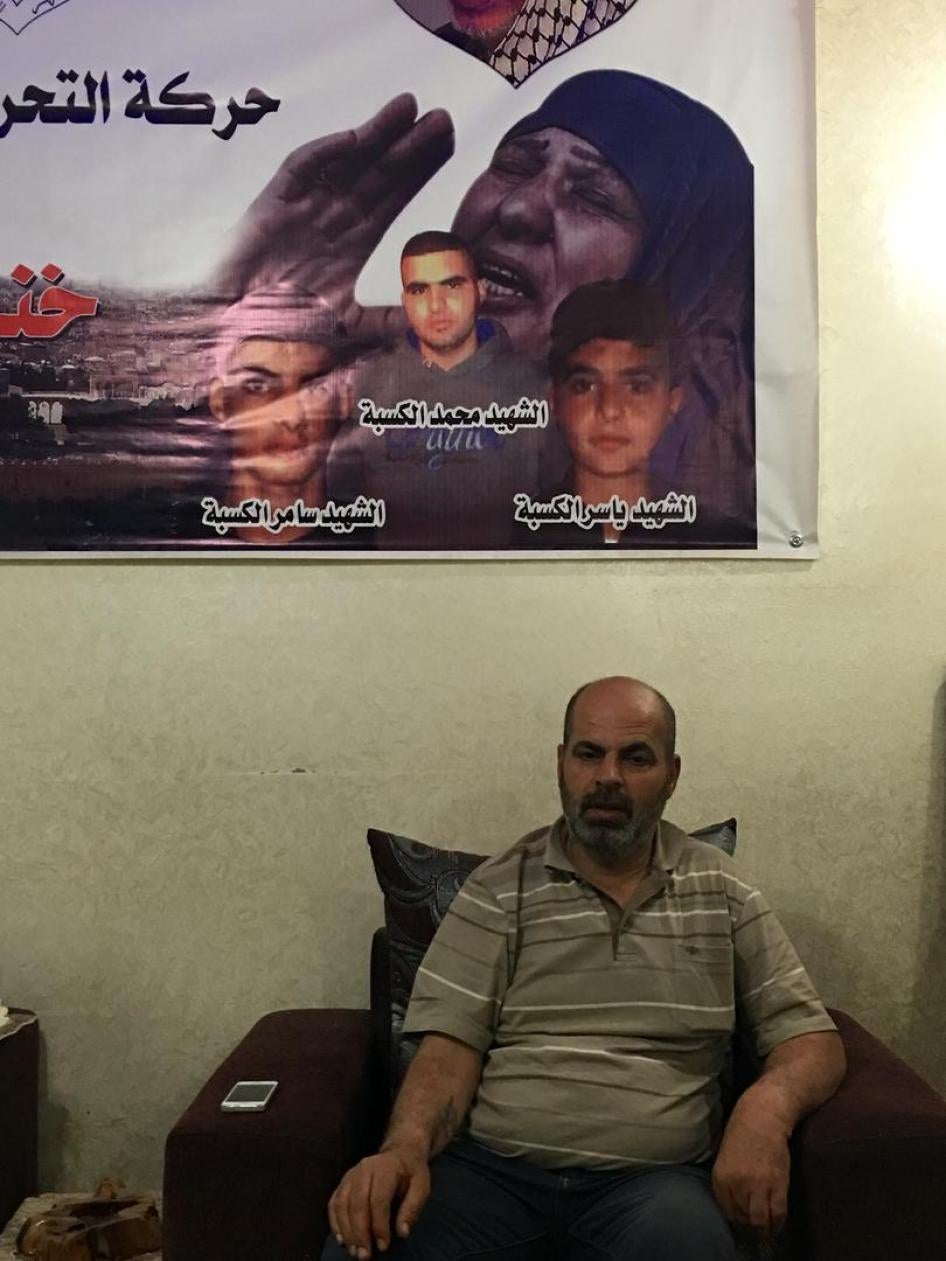A poster showing three young faces hangs in the home of Fatmeh and Sami al-Kasbeh in the Qalandia refugee camp, near the West Bank city of Ramallah. The faces belong to three of their children, each shot to death by Israeli soldiers in incidents spanning 14 years.
On August 12, 2001, their 11-year-old son Yasser, who allegedly was throwing stones at Israeli security forces, was shot by an Israeli soldier whose identity is unknown. The Israel Defense Forces investigated and concluded, “the soldier who fired the shot acted according to regulations.”
Forty days later, Samer, 15, was shot, also while allegedly throwing stones. No soldier was punished for that killing either, the parents said.
Then, on July 3, 2015, a commander fatally shot the al-Kasbeh’s third son, Mohammad, 17. Security camera footage capturing part of the incident, but not the shooting, shows Mohammad fleeing after throwing a stone at the jeep in which the commander rode, shattering its window. Eyewitnesses told the Israeli human rights organization B’Tselem that the colonel shot Muhammad from a distance of ten meters as the boy ran away, seemingly posing no immediate threat.
On April 10, 2016, a military investigation into Mohammed’s death deemed the shooting lawful. It noted three bullets hit the boy in the back and the side of the face but called the commander’s bad aim a “professional mistake.”
In a 1993 report, Human Rights Watch criticized Israel’s open fire regulations, which permit firing live shots at the legs of a fleeing suspect – even if he or she poses no immediate threat. Those rules, still in force, are inconsistent with United Nations Principles on the Use of Force. These state that “intentional lethal use of firearms may only be made when strictly unavoidable in order to protect life”. Human Rights Watch’s research both for, and since, the 1993 report demonstrates that many “fleeing suspects” have been killed by soldiers who subsequently faced no punishment for their “poor aim.”
In cases like those of Yasser, Samer, and Mohammed al-Kasbeh, there are two problems: first, the permissive, difficult-to-enforce regulations on shooting fleeing suspects, and second, the fact that investigations by Israel’s military rarely hold soldiers accountable for unjustified fatal shootings. The UN Principles require that persons affected by the use of force and firearms shall have access to a process of investigation that is independent.
This month, the Israeli human rights group B’Tselem announced that it would no longer refer complaints for military investigation, calling them a “whitewash”.
Reacting to the exoneration of the commander who killed Mohammad, Sami said, “We were expecting this result. Nothing can bring our sons back. My wife is devastated; she cannot even talk about the issue any more.”









